
In the world of electrical and electronic diagnostics, the multitester is an indispensable tool. This versatile device measures electrical values such as voltage, current, and resistance, replacing single-task meters with superior accuracy and reliability. With a myriad of options available, from analog to digital, and a range of features to consider, choosing the right multitester can be a daunting task. This guide aims to demystify the process, providing you with a comprehensive understanding of multitesters, their types, key features, and where to buy them, enabling you to make an informed decision.
Understanding Multitesters
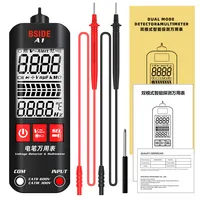
A multitester is a versatile tool used to measure electrical values such as voltage, current, and resistance. It's a standard diagnostic tool in the electrical/electronic industries. Digital multitesters have replaced analog meters due to their superior accuracy, reliability, and increased impedance. They combine the testing capabilities of single-task meters. Additionally, they often include specialized features or advanced options, allowing technicians to choose a model that best meets their specific needs.
Types of Multitesters

Multitesters come in various types, each designed for specific applications. Some notable types include Electrician's Multitester with Non-Contact Voltage, True-RMS Digital Multitester, and Industrial Multitester. Each type has unique features, such as non-contact voltage detection, industry-standard troubleshooting, and complex electrical problem identification. The choice of a multitester depends on the specific needs of the user.
Analog Multitesters
Analog multitesters are electrical test instruments used to measure voltage, current, resistance, frequency, and signal power. They use a needle along a scale, making them slightly difficult for beginners to read accurately. Despite this, they are very sensitive and have a low resistance, making them ideal for certain applications. They can measure electrical potential in volts, resistance in ohms, and current in amps. Advanced analog multitesters come with additional features such as capacitor, diode, and IC testing modes. They are generally benchtop or handheld, with multiple scales on the dial and many manual settings on the function switch.
Digital Multitesters
A digital multitester is a versatile tool used to measure voltage, current, and resistance. It has replaced analog meters due to its superior accuracy, reliability, and increased impedance. Digital multitesters combine the testing capabilities of single-task meters and often include additional specialized features. They are typically grouped by their number of counts, which describes the multitester's resolution, indicating how fine a measurement it can make. For instance, a multitester with a resolution of 1 mV on the 4 V range can detect a change of 1 mV while reading 1V.
Key Features to Consider
When considering a multitester, key features to look at include its testing capabilities and resolution. Multitesters combine the functions of voltmeters, ammeters, and ohmmeters, often with additional specialized features. The resolution of a multitester, described in terms of counts and digits, determines how fine a measurement it can make. For instance, a multitester with a resolution of 1 mV on the 4 V range can detect a change of 1 mV while reading 1V. Therefore, understanding a multitester's resolution can help technicians determine if it can detect small changes in a measured signal.
Accuracy
Accuracy in a multitester refers to the largest allowable error that occurs under specific operating conditions. It's expressed as a percentage, indicating how close the measurement displayed is to the actual value of the signal measured. The accuracy of a specific multitester is crucial, depending on the application. For instance, calibration of automotive, medical aviation, or specialized industrial equipment may require higher accuracy. Basic dc accuracy of some multitesters can range from 0.5% to 0.025%. Remember, higher accuracy allows for a greater number of applications.
Range of Measurements
Multitesters are versatile instruments capable of measuring various electrical properties. A typical multitester can measure voltage, resistance, and current, effectively functioning as a voltmeter, ammeter, and ohmmeter. Some advanced models also feature additional measurement capabilities, such as temperature and capacitance. The range of measurements a multitester can perform is crucial to consider when choosing the right device. From low-cost models to high-precision laboratory-grade instruments, multitesters come in a wide range of capabilities and prices, ensuring there's a suitable option for every need.
Durability and Build Quality
The durability of a multitester is a crucial factor to consider. A robust device can withstand shocks, bumps, and accidental falls, ensuring its longevity. The outer casing should be hard enough to endure workplace wear and tear, preventing the circuit from exposure. While high-quality, durable multitesters are often more expensive, they are preferred for industrial or professional use. However, for home testers and DIYers, less expensive models may suffice. Striking a balance between price and durability is essential, and it's worth waiting for a sale or price reduction to get a quality meter.
Ease of Use
Multitesters are designed with user-friendliness in mind. Analog multitesters are often preferred for their simplicity and cost-effectiveness, despite the potential difficulty in reading the moving needle display. Digital multitesters, on the other hand, are favored for their accuracy, although they may not be suitable for rapidly changing readings due to conversion delays. Some digital meters even offer wireless capabilities, allowing for easy sharing of data and results. Additionally, features like auto-off and a good click on the range selector contribute to the ease of use.
Price and Value
When purchasing a multitester, it's recommended to spend around $40-$50, or a maximum of $80. Low-cost multitesters, as cheap as $2, often lack durability and safety features. A $40-$50 multitester, on the other hand, offers better safety and longevity. High-end meters can cost hundreds of dollars, but these are not necessary for beginners. Therefore, a mid-range multitester offers the best value for money, balancing cost, safety, and durability.
Where to Buy Multitesters
When it comes to purchasing multitesters, Alibaba offers a wide range of options from various brands. These brands offer multitesters in various price ranges, from as low as $0 to over $700, catering to different budget requirements. They also provide additional items like batteries, test leads, cases, and extra pins/probes. Alibaba ensures fast delivery options, including free 2-day delivery and next-day delivery, making it a convenient platform for your multitester purchase.
Online Marketplaces
When it comes to purchasing multitesters online, Alibaba is a reliable marketplace. It offers a wide range of brands. The platform provides a variety of options in terms of price, ranging from as low as $0 to over $700, catering to different budget needs. Additionally, Alibaba ensures fast delivery options including 2-day and next-day delivery. Notably, the platform also offers special events like Black Friday and Pro Xtra Early Access, providing opportunities for buyers to get the best deals. Therefore, Alibaba is a convenient and trustworthy platform for purchasing multitesters.
Physical Stores
Many top multitester brands have their products available in physical stores. These stores provide a hands-on experience for buyers, allowing them to inspect the product before purchase. This is particularly beneficial for products like multitesters, where tactile feel and ease of use are important considerations. So, whether you're looking for a precision instrument or an affordable multitester, you can find them in physical stores across the US.
Conclusion
Choosing the right multitester is a crucial decision that can significantly impact the accuracy and efficiency of your electrical or electronic work. Whether you're a professional technician or a DIY enthusiast, understanding the types of multitesters, their key features, and where to buy them can guide you towards the right choice. Remember, the best multitester for you depends on your specific needs, budget, and the range of measurements you require. Whether you opt for a high-end multitester or a budget-friendly option, ensure it offers the right balance of accuracy, durability, and ease of use. With a multitude of options available both online and in physical stores, you're sure to find a multitester that fits your needs perfectly.
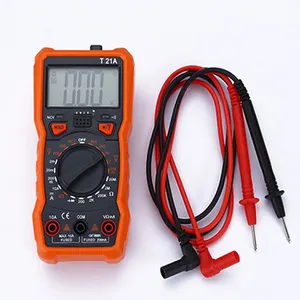
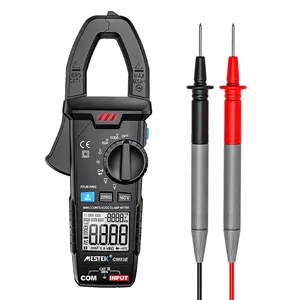

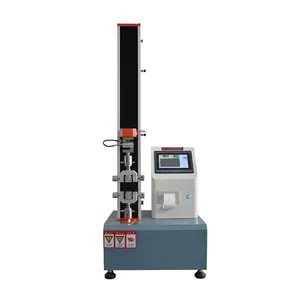
















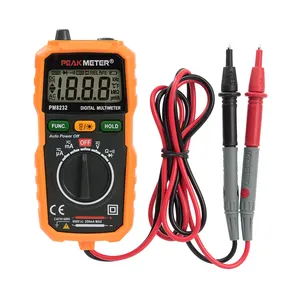



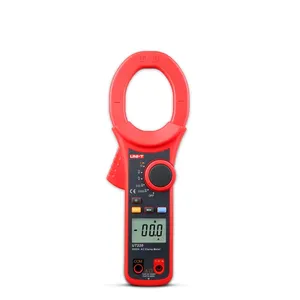
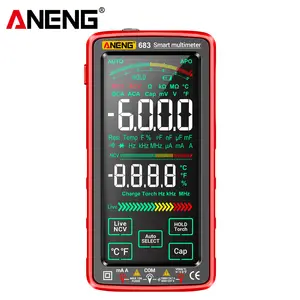


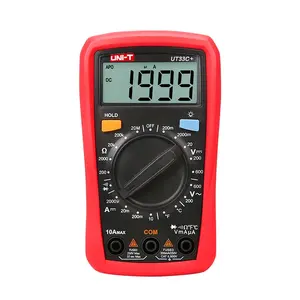



















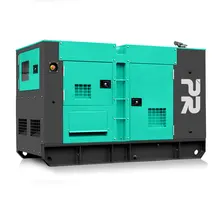


























 浙公网安备 33010002000092号
浙公网安备 33010002000092号 浙B2-20120091-4
浙B2-20120091-4